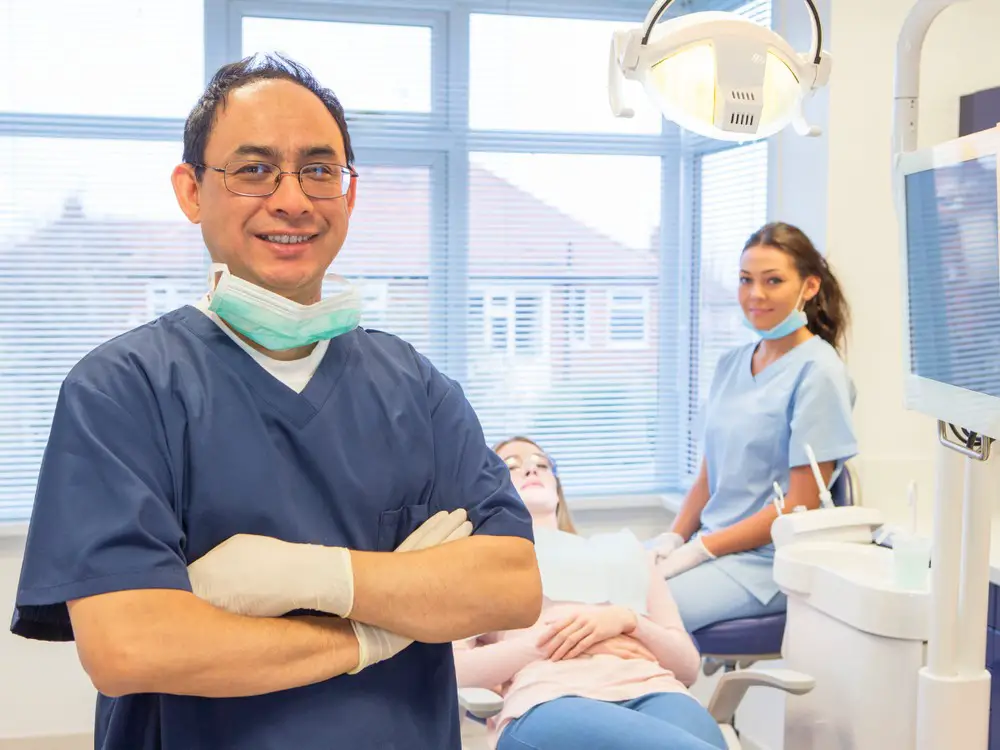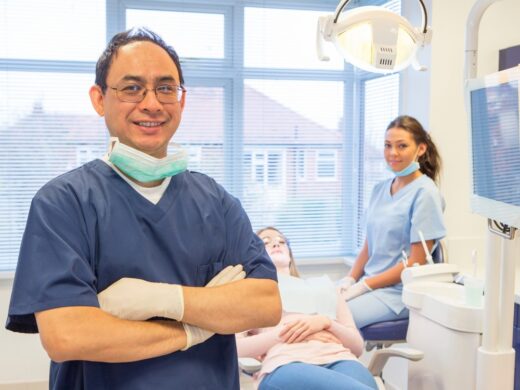All about oral surgery procedures, Dental care, Lifestyle illnesses advice, Chronic conditions tips
All About Oral Surgery Procedures
17 Aug 2022
Some people fear the words “dental surgery” since this type of procedure is said to be painful and costly.
Everyone is susceptible to dental problems; maintaining good oral hygiene is essential in preventing them. Sometimes, dental surgery is the only way to address some of the conditions many people have. However, seeing a dentist for treatment and diagnosis is best if you already have a dental problem.
Dentists provide their patients with various treatments depending on their conditions. Here’s an overview of some of the most common surgical procedures dentists perform.
All About Oral Surgery Procedures Guide
- Root Canal Surgery
Root canal surgery is one of the most common types of dental surgery dentists perform. They aren’t painful and can save your tooth from extraction. But, it does cause some discomfort for a few hours.
Dentists perform root canal surgery to remove bacteria from infected root canals. The dental pulp is the soft core beneath the enamel and contains nerve endings, tissues, and blood vessels. Bacteria can infect and enter the pulp when the enamel is worn down, causing damage and swelling.
During a root canal surgery, dentists remove the infected pulp, clean the inside of the teeth, fill it, and seal it. They may also place a crown on top of your tooth.
Some of the benefits of root canal surgery are:
- Keep infection from spreading
- Improvements in oral health and overall health
- Prevent jawbone degeneration
- Reduction of swelling to improve your appearance.
- Implant Surgery
Implant surgery is a procedure where your tooth’s roots are replaced by small titanium posts into your jawbone. After the bone heals and the post is firmly anchored to the jaw after six to twelve weeks, dentists place an abutment and a crown to replace missing teeth.
Dental implants aren’t as painful as tooth removals, as many believe; dentists apply anesthesia to numb the area before the procedure to prevent patients from feeling pain. Patients may also feel discomfort after the procedure, but it won’t last long.
Some of the benefits dental implants offer include:
- Better oral and overall health
- Higher self-esteem
- Comfort and better-fitting
- Easier dining
- Wisdom Tooth Extraction
Wisdom tooth extraction involves the surgical removal of the wisdom teeth, the third set of molars that come out between ages 17 to 25.
Wisdom teeth often don’t have room to grow. They push against the other teeth, which causes pain, infection, and other dental problems. However, some are lucky enough to still have wisdom teeth that don’t cause problems. It’s best to keep your wisdom teeth intact unless they start causing you dental problems.
Dentists sew the extraction site after removing the wisdom teeth to prevent bleeding and accelerate the healing process. Some people feel fine after three to four days, but gums take at least a couple of weeks before completely healing.
Some of the benefits of wisdom tooth extraction are:
- Fewer orthodontic problems
- Prevention of cysts, tumors, and jaw injury
- Lower risk of infection and other oral diseases
- Protect adjacent teeth from damage
- Eliminate pain
- Reconstructive Surgery
Accidents can happen, and sometimes they cause injury to the face, and it’s best to consult experts to determine the best course of treatment you should take, regardless of the accident’s cause. This may include reconstructive dental surgery.
Reconstructive dentistry is a form of facial reconstruction usually performed to repair the jawbone and teeth. Dental implants and other suitable treatments are sometimes used to correct jaw alignment and bone structure.
Here are some things you can expect after undergoing dental reconstruction surgery:
- Better appearance
- Increased confidence
- Improved jawbone function
- Cosmetic Procedures
Cosmetic procedures improve a patient’s appearance and are not often required by doctors. These may involve a variety of treatments like orthodonture, veneers, composite restoration, tooth shaping, and teeth whitening. They are in-office procedures that are usually painless.
According to Sunrise Dentistry, each patient’s treatment plan is unique in cosmetic surgeries, allowing dentists to meet each patient’s needs and desired results.
Some of the benefits cosmetic procedures bring include:
- Enhanced appearance
- Improved self-confidence
- Shorter recovery times
- Optimized oral health
Key Takeaway
Dentists provide many treatments to address all sorts of dental problems. Aside from simple checkups and teeth cleaning, they also perform surgeries to address some problems better. They perform root canals to save a tooth from extraction and eliminate bacteria from a tooth’s pulp. They also perform implant surgery, placing screws and abutments topped with a crown to replace missing teeth.
Wisdom tooth removal is another surgical procedure dentists perform; some people have larger wisdom teeth, requiring dentists to stitch the extraction site closed to prevent it from getting infected.
Dentists may also perform reconstructive surgeries for patients who require extensive repairs done on their teeth, gums, or jaws after an accident. Dentists also perform cosmetic procedures to improve their patient’s smiles.
Comments on this All About Oral Surgery Procedures article are welcome.
Healthcare Building Design
Healthcare Buildings
Springfield University Hospital in London, England, UK
Design: C.F. Møller Architects

image courtesy of architects office
MD Anderson Cancer Center at Cooper in Camden, New Jersey, USA
Design: Francis Cauffman, Architects

photo : Chris Cooper
Buildings
Architecture
Comments / photos for the All About Oral Surgery Procedures advice guide page welcome


